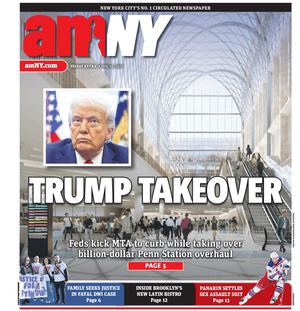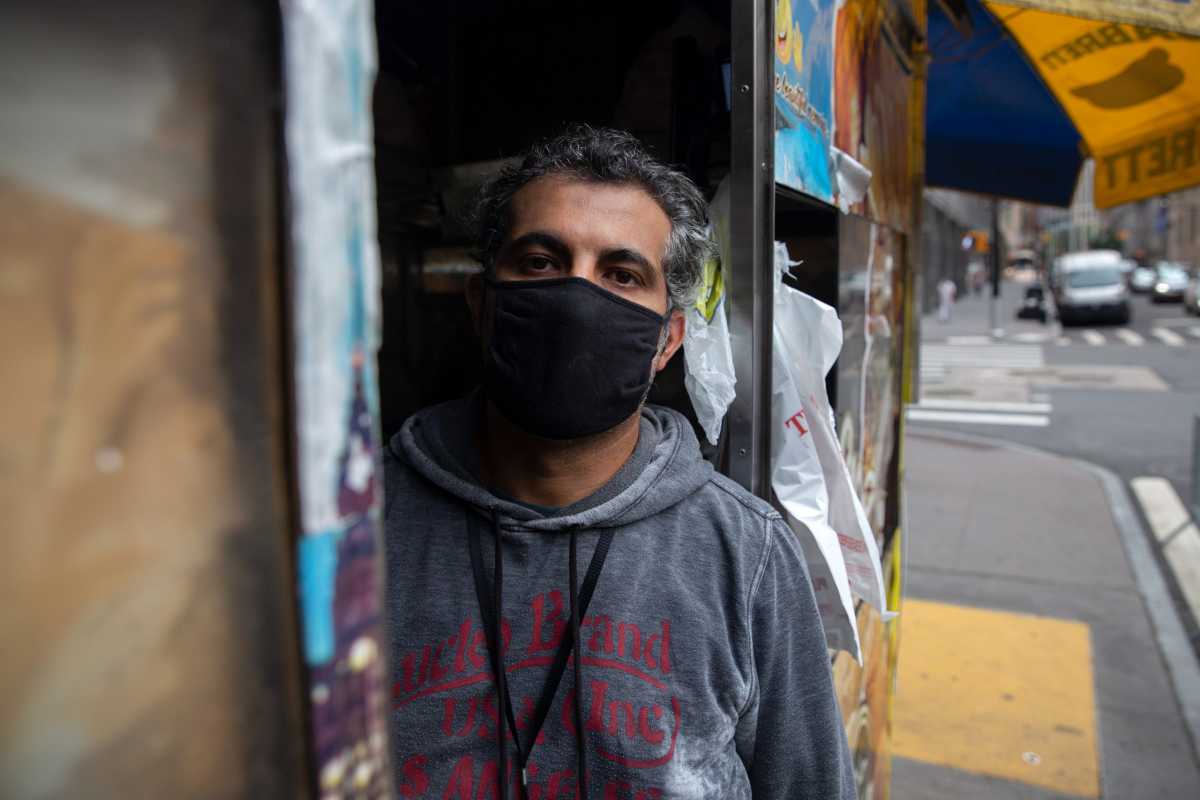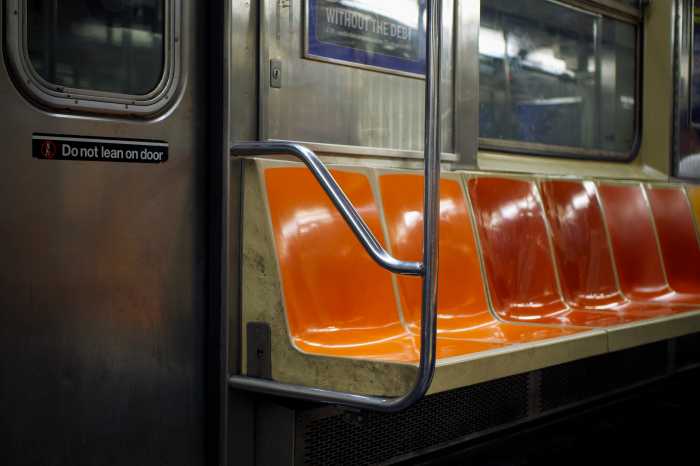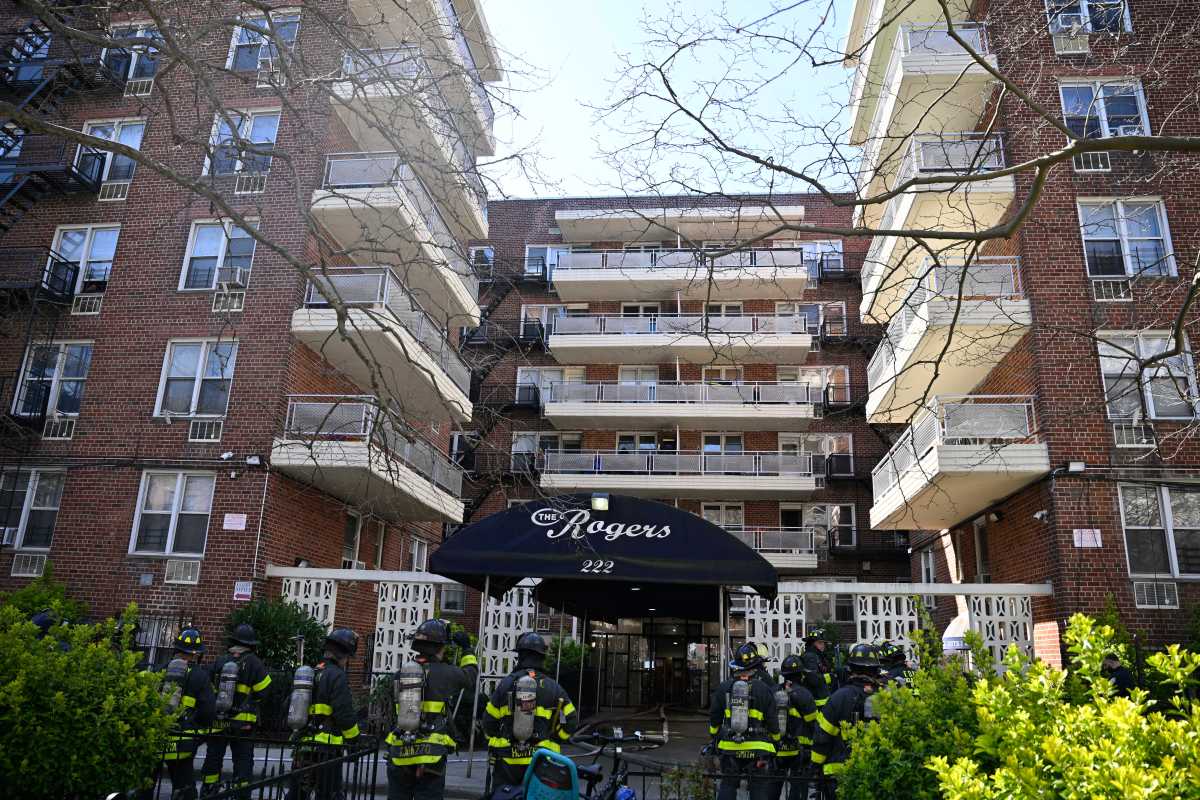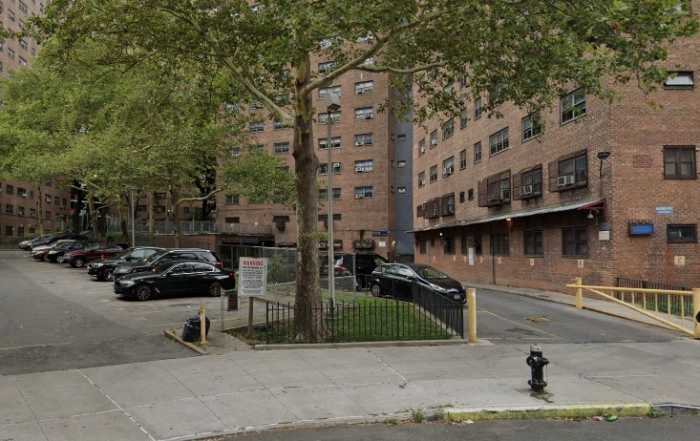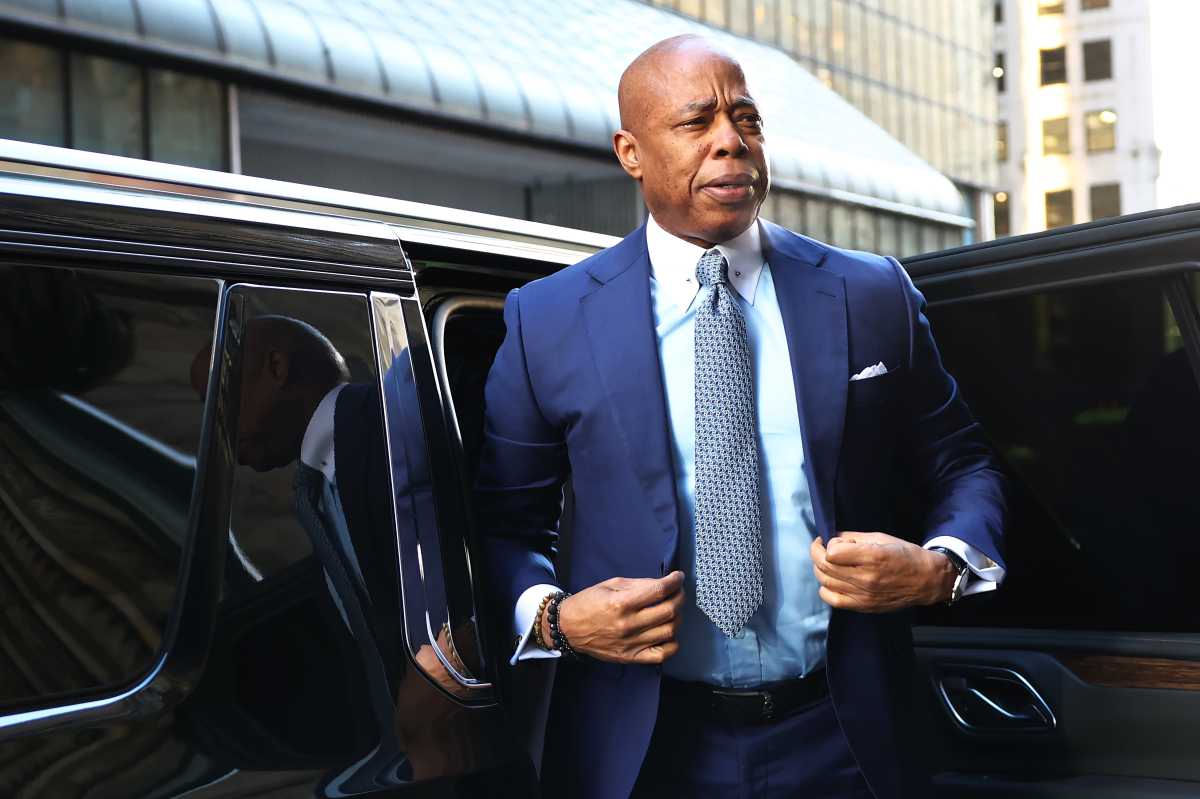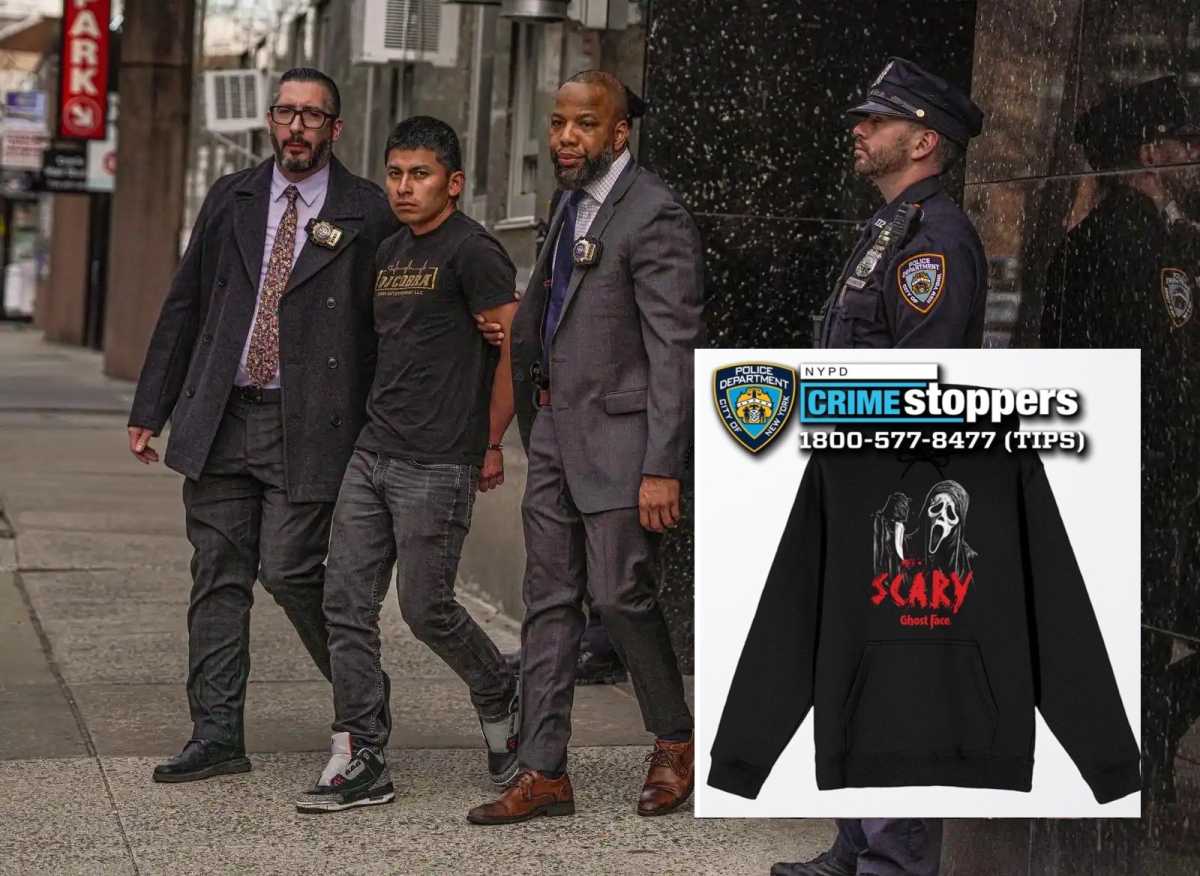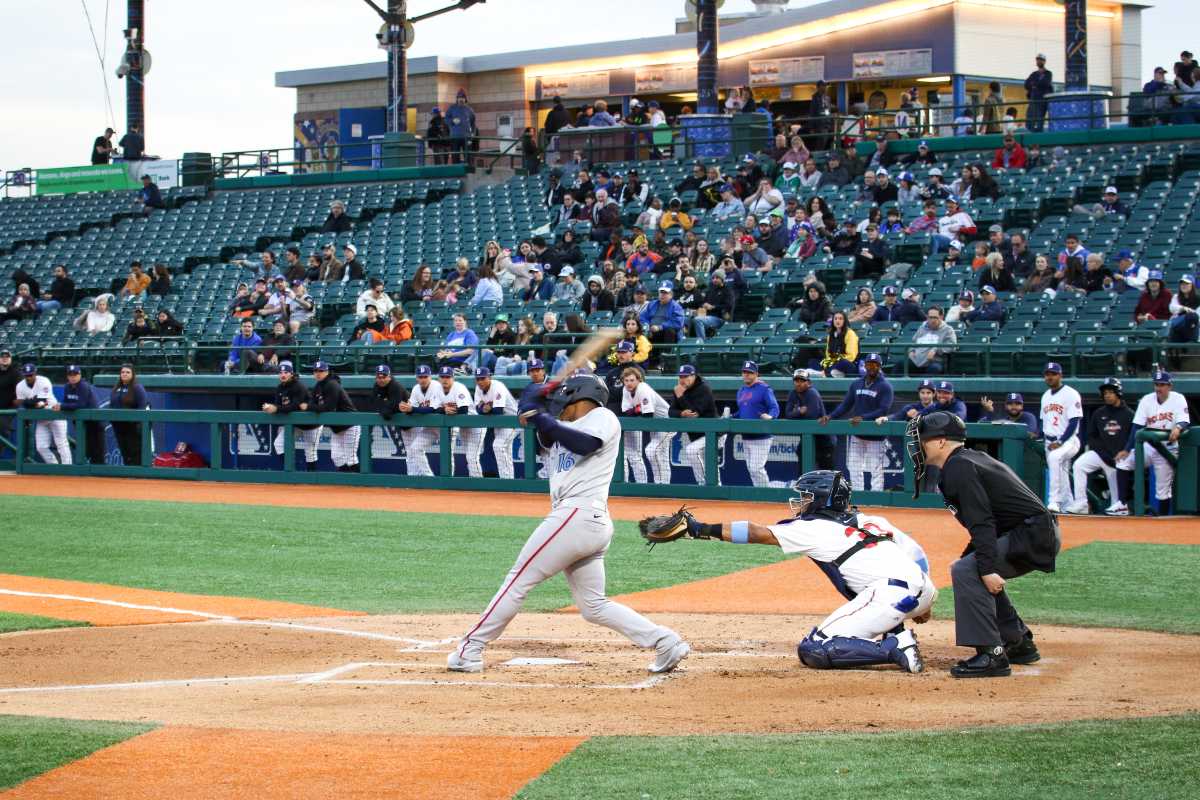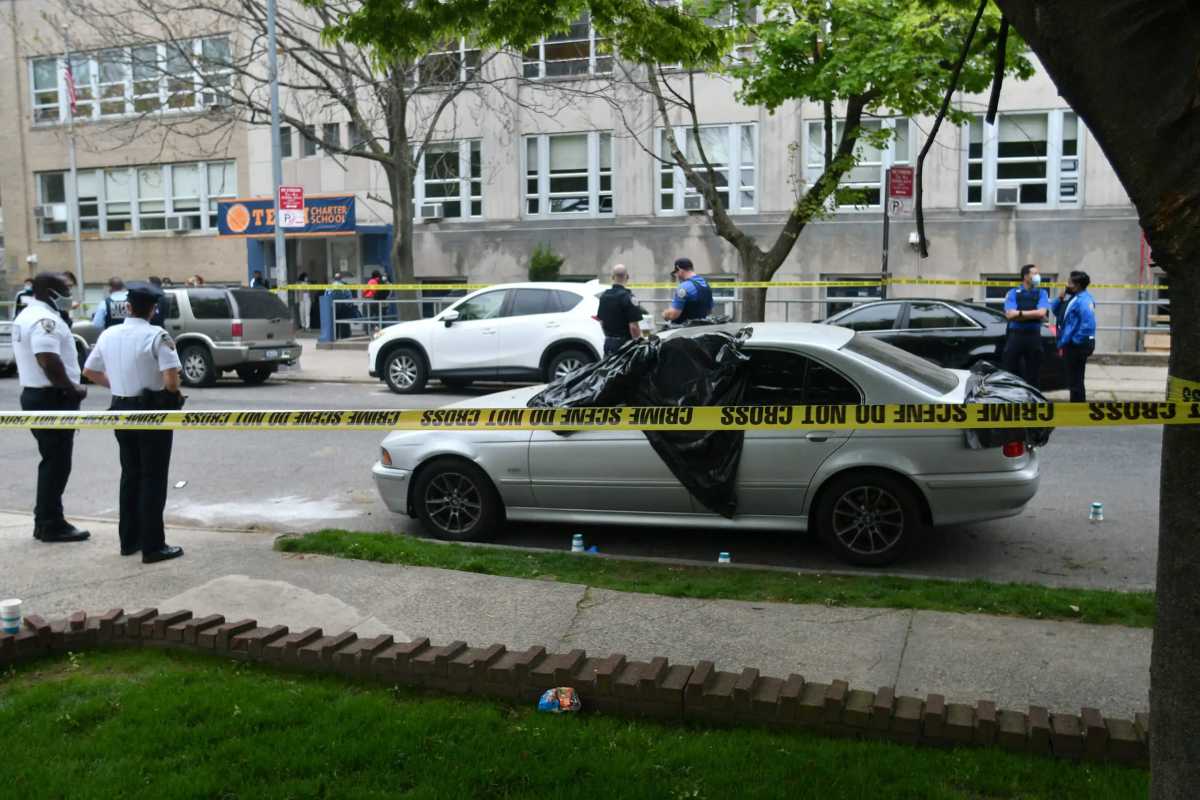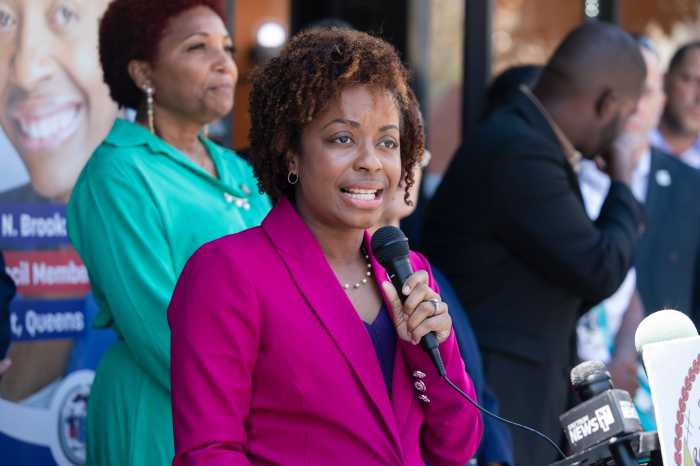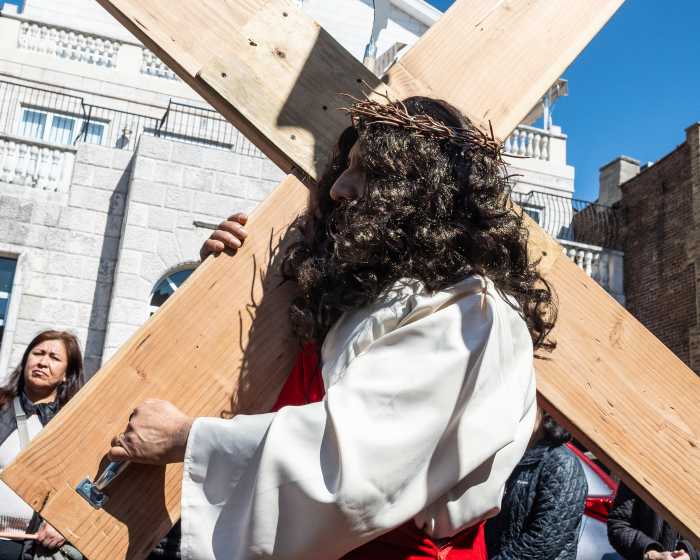by Christine Chung, THE CITY
This article was originally published on by THE CITY
Three months after Mayor Bill de Blasio announced that cops would stop ticketing street vendors, some are still getting hit with costly violations by police as they battle back from the pandemic shutdown.
Case in point: NYPD officers issued tickets to two food sellers in Lower Manhattan Monday, in what cops promoted on social media as an effort to protect quality of life.
The tickets, set at $500 for each infraction, cited the vendors for allegedly parking their permitted carts closer to a crosswalk than the required 10-foot distance and other violations. (The cops’ citations incorrectly said the minimum required distance was 12 feet.)
“Why do I have to feel like a criminal if I’m just working?” said Nabil Boussbaa, a 46-year-old street vendor whose Financial District food cart was ticketed by police Monday afternoon.
He said it marked the first time he’s received a citation from the NYPD, after five years of selling food with a license at the same spot on Barclay Street and West Broadway. Boussbaa added that he does not believe he broke any rules.
“We always feel that the city officials, any enforcement agencies, treat vendors with a lot of disrespect,” Boussbaa, of New Jersey, said in Arabic through an interpreter.
He added: “Like we are nothing. That is very humiliating.”
De Blasio’s office has not provided a timeline for when the NYPD will stop slapping street vendors with violations nor offered any details about how this change would affect broader enforcement, which is currently conducted by multiple city agencies.
“As appropriate, the NYPD will continue to respond to other illegal vending complaints in the interim as we work through an enforcement transition process,” said Julia Arredondo, a spokesperson for de Blasio.
Pledge to Reduce Friction
In early June, following community pressure and protests after the killing of George Floyd by police officers in Minnesota, de Blasio announced a series of reforms aimed at rebuilding trust between New Yorkers and cops.
Steps included moving funds from the NYPD to boost youth and supportive services — and eliminating the department’s role in policing vendors.
NYPD’s exit from vendor enforcement would reduce “interactions between uniform officers and New Yorkers, particularly immigrant communities and communities of color,” a June 7 news release from de Blasio’s office reads.
Vendors and advocates had no prior notice about this policy shift and have not gotten any information since, said Mohamed Attia, director of the Street Vendor Project, a nonprofit that promotes the rights of vendors in the city.
The group estimates roughly 20,000 vendors sell food and other items across the five boroughs. Since 1983, the number of citywide food vending permits issued by the city health department has been capped at roughly 3,000, which has led to the proliferation of a black market where $200 permits are resold for up to $25,000.
Multiple vendors told THE CITY they are left with no option but to work illegally, take their chances on getting ticketed with the possibility of their belongings being confiscated.
“The risk is every day, every morning,” said Gerardo Vital, 47, who sells tacos in Corona, Queens. “We need to work because of the family. I have two kids.”
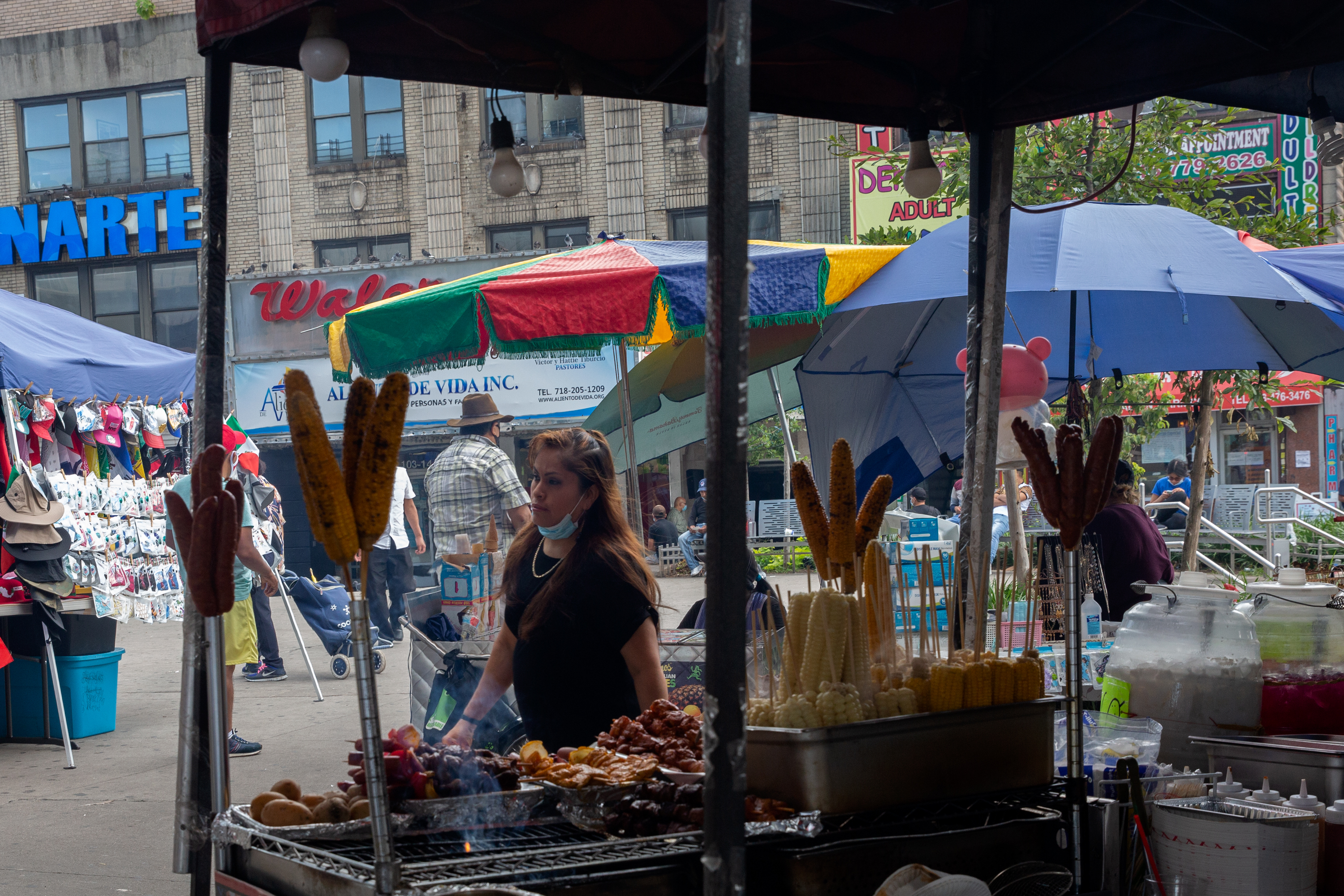
Multiple city agencies, including the departments of Health, Parks, Consumer Affairs and Sanitation, are charged with issuing summonses for infractions, which include vending in restricted areas or preparing food in unsanitary conditions.
A spokesperson for the Department of Parks and Recreation said that the forthcoming changes to NYPD responsibilities and practices do not impact Parks’ ongoing efforts to address unlawful vending.
A spokesperson for the NYPD, Jessica McRorie, said that the department is working with the mayor’s office to phase out of vendor enforcement, but is continuing to respond to related 311 service requests and 911 calls.
Some 1,438 violations against vendors were filed with the Office of Administrative Trials and Hearings between January and March, with enforcement then all but halting during the pandemic.
Some 17 violations filed with OATH since April are in the city’s open records repository, which doesn’t include the two issued Monday. Approximately 6,000 violations were issued in 2019, amounting to $1.3 million in imposed fines.
Mistreatment and Misinformation
A vendor who has sold halal food for the past two years on Vesey and West Streets told THE CITY he’d never had any issues with the NYPD until Monday afternoon, when he was notified by police that he was allegedly in a restricted area.
He said several police officers approached him, told him to leave, and examined his license.
They then issued him two tickets — each for $500 — one for being too close to the sidewalk, and the other for having boxes near his cart. He doesn’t believe he did anything wrong.
The 36-year-old vendor, who asked to remain anonymous, said that he was out of work for three months during the pandemic. He now makes half of what he did previously. He said he does not know how he’ll be able to pay the fines.
“They treat us bad,” he said of government enforcement agencies. “The city doesn’t offer any financial support for us, and never gave us the permits we need for many years.”
Police have also been continuing enforcement outside of Manhattan.
In The Bronx, the Third Avenue Business Improvement District has relaunched an education campaign about street vending. As recently as two weeks ago, police officers distributed the BID’s handouts.
But vendor advocates say that the flier contained inaccurate information, including giving the wrong distance they must maintain from a subway entrance and a claim that a street activity permit, normally mandated for events like street fairs, is needed to sell in the area.
Alarmed vendors say they are fearful of going to work.
“Giving a flier that lists this information really scared a lot of people,” said Carina Kaufman-Gutierrez, the Street Vendor Project’s deputy director. “They were like, ‘Am I going to be arrested if I violate any of these incorrect rules?’”
Michael Brady, the BID’s executive director, told THE CITY that the informational materials have since been updated to correct the subway distance error. He added that the group is consulting the city Department of Transportation for an answer on whether the area is a designated “zero sidewalk display street” that bars vending.
“The district believes that street vendors add life and energy to the neighborhood and are small businesses,” Brady said. “The district also believes that street vending has become unregulated and predatory, and — with City Hall’s recent removal of street vendor enforcement from NYPD and lack of adequate sanitation services — unbridled.”
Waiting on Permits
Boussbaa dreams of being his own boss, owning a business and a cart. He doesn’t believe this will happen under the current regulations.
Some 1,350 names are currently on the waiting list for a citywide food vending permit, according to the Department of Health and Mental Hygiene.
A bill introduced two years ago in the City Council would lift the cap on permits and steadily increase the total number. The measure also would create a new unit dedicated to enforcing compliance with city rules and regulations, and establish an advisory board of street vendors and other stakeholders.
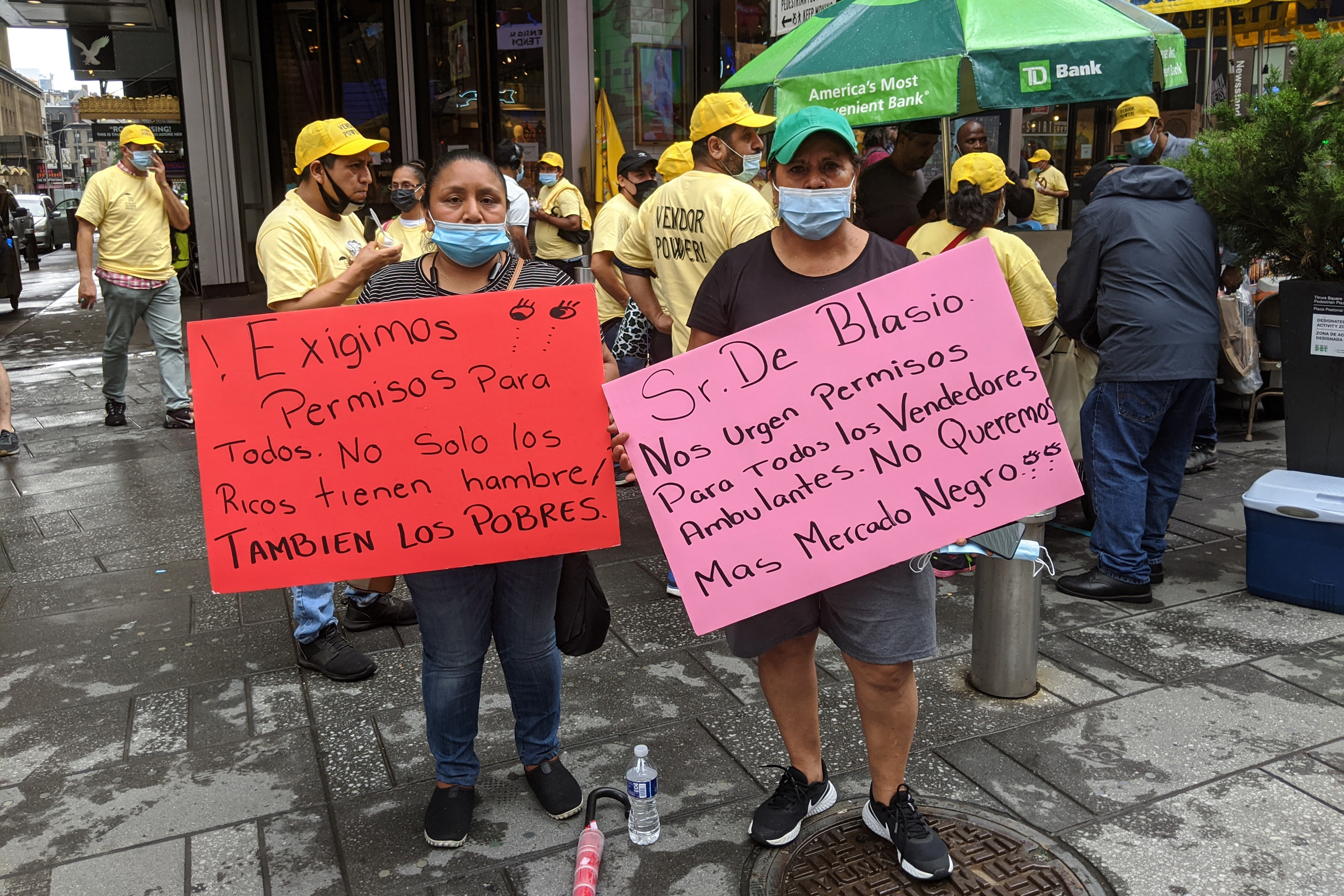
Councilmember Carlina Rivera (D-Manhattan), one of the bill’s sponsors, told THE CITY that Monday’s tickets were “emblematic of the current administration’s lack of clarity surrounding permit enforcement and policing at large.”
It was “incredibly disheartening to hear reports that street vendors are still being harassed by the NYPD,” she added.
There has been no movement on the bill since the spring of 2019.
Councilmember Margaret Chin (D-Manhattan), the bill’s lead sponsor, said that passing Intro 1116 was necessary for an “inclusive recovery for the workforce.”
“It’s unacceptable that months after the Mayor announced the removal of NYPD from enforcement, street vendors are still being forced to interact with police, especially when vendors have been excluded from the city’s relief efforts and are simply doing their best just to survive,” Chin said.
“The city needs to get its priorities straight.”
Following his Monday clash with police, Boussbaa is back to work, but said he is “so nervous and so scared.” He said he feels on edge anytime a police car drives by.
“I feel like a criminal who has to watch out for the NYPD every minute,” he said. “Let us work. Leave us alone.”
With translation by Mohammed Attia
THE CITY is an independent, nonprofit news outlet dedicated to hard-hitting reporting that serves the people of New York.
